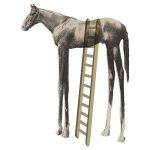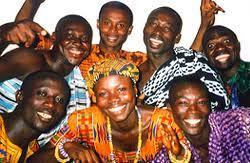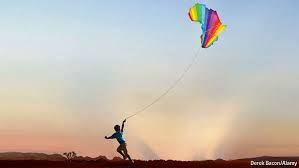 When William Easterly reviewed Matt Ridley’s The Rational Optimist, he called “disturbing” Ridley’s use of the word “even” regarding Africa, as in saying something good is happening “even in Africa.” Easterly, from a politically correct high horse, sneered at Ridley as “equality challenged.”
When William Easterly reviewed Matt Ridley’s The Rational Optimist, he called “disturbing” Ridley’s use of the word “even” regarding Africa, as in saying something good is happening “even in Africa.” Easterly, from a politically correct high horse, sneered at Ridley as “equality challenged.”
Strange perhaps that Easterly himself authored a book titled The White Man’s Burden” !
That’s a cheap shot – but so was Easterly’s. The fact is that most of Africa for decades was obviously, er, “progress challenged,” a graveyard for dreams; so to say that a positive trend is visible “even in Africa” is entirely appropriate. Is it somehow anti-equality to recognize the reality of Africa’s problems?
This blog has long expressed great optimism about progress and the human future. So let me now add too: even in Africa.

Ouattara
When in 2010 I heard news that Cote D’Ivoire’s President Gbagbo, who had lost a (long-delayed) election, was refusing to accept the result, I said to myself, “Here we go again. How many lives will this cost?” The answer was several thousand. But in the end, Gbagbo did not get away with it, and is now a guest of the International Criminal Court awaiting trial. His successor, Alassane Ouattara, a former IMF economist, seems to be responsibly working to tackle the nation’s problems. This is the new Africa.
It is portrayed in an excellent recent survey by The Economist. After colonialism ended, much of Africa was plunged into a morass of incompetent and corrupt, rapacious government by venal dictators, who did what they did because they were pushing on an open door; i.e., civil society did not have its act together sufficiently to stop them. But that has been changing; the door is finally closing, as seen in Cote D’Ivoire, and in many other African countries. Democracy is very much on the rise, more and more elections are being held, more and more fairly, and one by one the dictators have been going; and with them, a lot of the conflict and violence that such rule tends to propagate.
Even (that word again) in places like Sudan, Congo, Angola, and Somalia, no pillars of democracy, violent conflict has been ebbing. Somalia is beginning to rebuild itself as a functioning nation. Sudan’s split into two countries, I had feared, would spark a new war, especially over contested oil resources. But that situation too seems to be calming down.

This is an obvious consequence of reduced violence, and mainly reflects the overall better quality of governance that democratic politics brings, with officials accountable to voters. A key factor is the general abandonment of socialist and statist economic approaches in favor of more market-oriented, trade-oriented, and investment-oriented policies. It was a hard lesson to learn, but it’s finally being learned in Africa. (In this, Africans may be ahead of those advanced sophisticates in Europe.)

Even in Africa.
